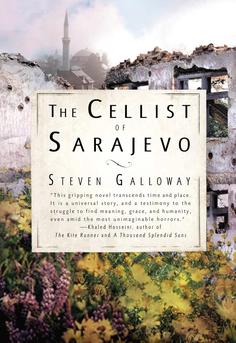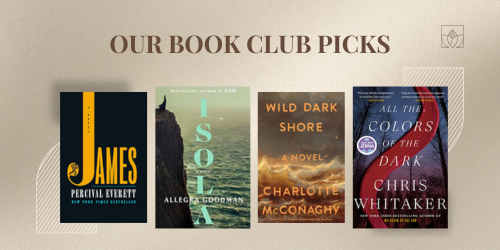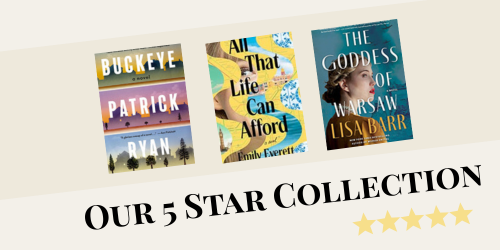
 |
The Cellist of Sarajevo |
|
by Steven Galloway
|

|
Book Review |

|
(by Linda) |
|
This is a fictionalized account of actual events during the siege of Sarajevo. After witnessing the death of 22 people killed by mortars while waiting in line for bread, a cellist risks his life to play Albinoni's Adagio for the next 22 days to honor them. Galloway presents a vivid, in depth picture of living in a war torn city by following the daily routines of several people and examining their thoughts over the three weeks the cellist played.
Through Kenan and Dragan we witness the danger of obtaining water or simply crossing a street to go to work; their fear of death from opposition snipers is palpable and not easily forgotten. Their thoughts as they rationalize the risk, hope for a better future, and long for the past are haunting. My favorite character is Arrow. She is complex and ruthless, hardened by war yet very human. As an expert sniper assigned to protect the cellist, her chapters raise the tension and suspense. Although the style is literary, at times it reads like a documentary, so it may not be a book for everyone. |
Book Summary |
|
A spare and haunting, wise and beautiful novel about war, the endurance of the human spirit, and the subtle ways people reclaim their humanity.
FINALIST 2009 - BC Book Prize's Ethel Wilson Fiction Prize NOMINEE 2009 - Canadian Booksellers Association Libris Award - Fiction Book of the Year NOMINEE 2008 - Scotiabank Giller Prize In a city under siege, four people whose lives have been upended are reminded of what it is to be human. From his window, a musician sees twenty two of his friends and neighbors waiting in a breadline; in a flash they are killed by a mortar attack. In an act of defiance, he picks up his cello and decides to play at the site of the shelling for twenty two days, honoring their memory. Elsewhere, a young man leaves home to collect water for his family and must weigh generosity against survival. A third man searches for bread and distraction and instead meets a long ago friend who reminds him of the city he thought he had lost. As both men are drawn into the orbit of the cello's music, a fourth character - a young woman, a sniper - holds the fate of the cellist in her hands. As she protects him with her life, her own army prepares to challenge the kind of person she has become. Inspired by a true story, The Cellist of Sarajevo explores how war changes our definition of humanity, the effect of music on endurance, and how a romance with daily rituals can itself be a form of resistance. |
Discussion Questions |
Book Club Talking Points |
|
This book highlights the atrocities humans can inflict and provokes reflection on the senselessness of war. Arrow's character will spark debate as her need to defend her city clashes with the cost to her identity. The most arresting aspect is that the story is rooted in real events. The cellist, though lightly sketched, is integral to the novel's moral core and to conversations about courage, ritual, and resistance.
|
Looking for your next group read? Explore 4+ years of curated picks that actually spark a conversation ....
|
You May Also Like |
 The Book of Doors
Book Review:This book is a must-read for anyone who's interested in the fashion world or enjoys reading stories about female friendships. It follows the journey of Gloria and Estee Lauder, two women who share their dreams of working in ...More
|
 The BoyfriendBook ReviewAnother Freida McFadden book that is guaranteed to keep you guessing. Sydney Shaw is a young 30-something woman living and dating in NYC. Sydney is very relatable. Partly because what female hasn't had ... More
|
 The Violin Conspiracy
This book grabbed my attention from the very beginning, with the opening playing beautiful classical music. A few times throughout the book, there are additional snippets of music. It's one of the bonuses of listening to a book on audio ...More
|
 Local Woman MissingLocal Woman Missing is a gripping psychological thriller by Mary Kubica, filled with suspense, mystery, and secrets. I loved how this book grabbed from the first chapter and had me on the edge of my seat... More
|
Visit Our Blog |
You May Also Like |
Looking for a guaranteed 5-star read? We've curated our all-time favorites ....
|








